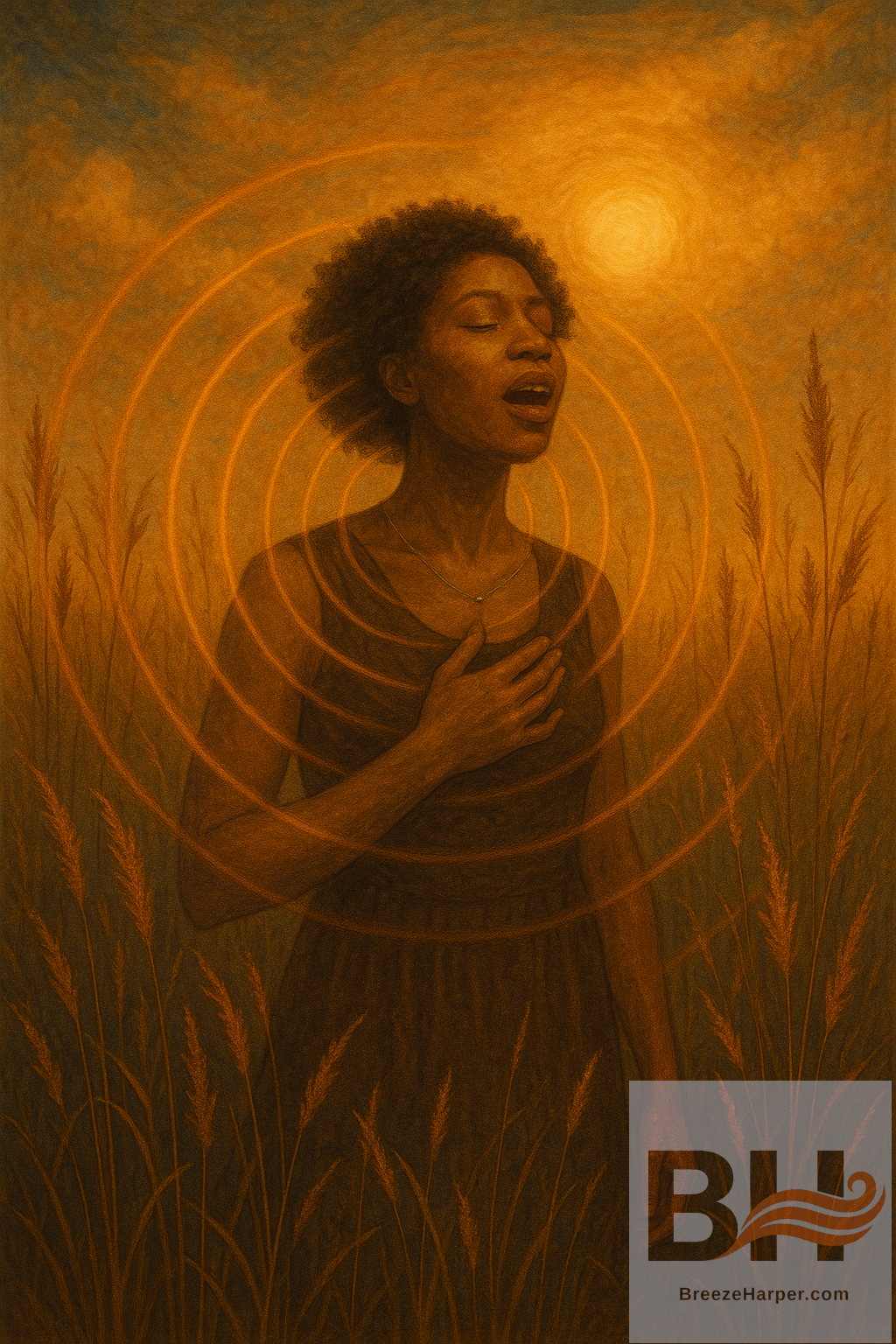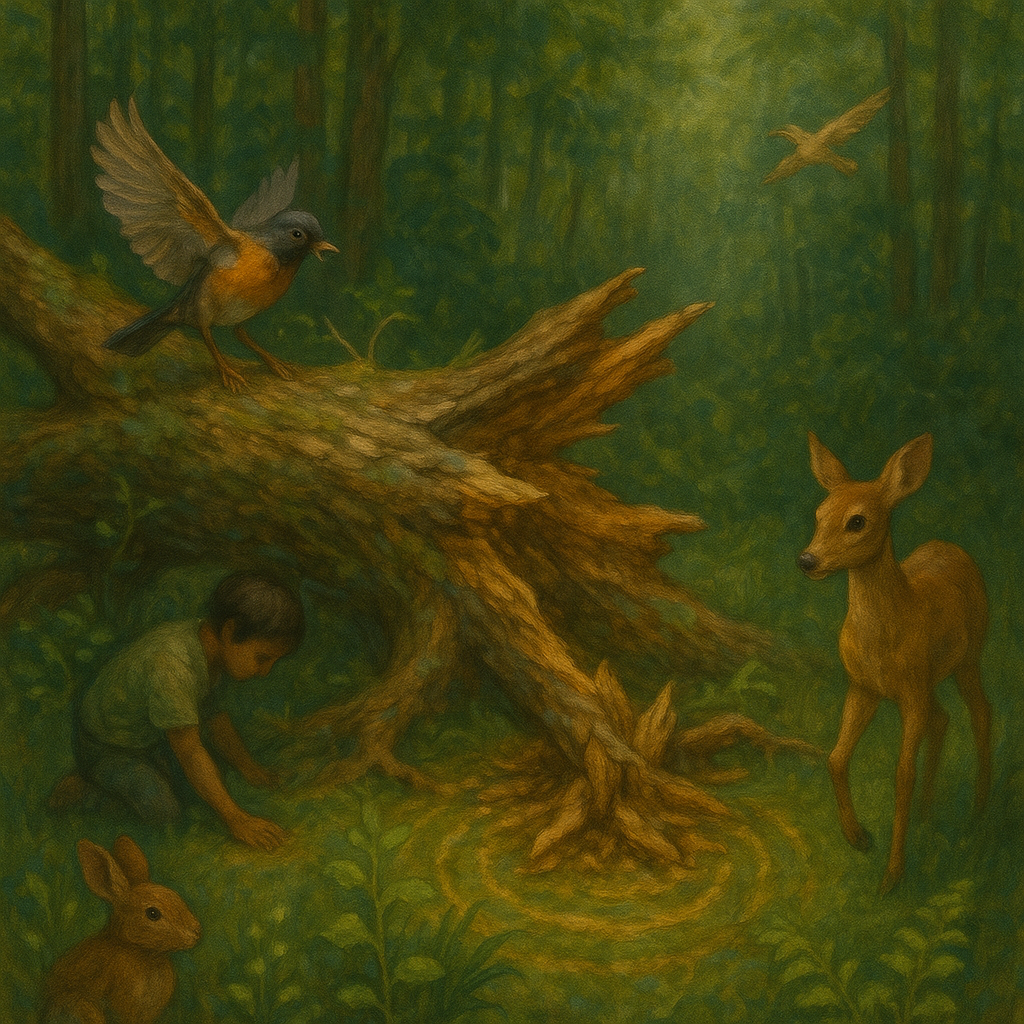On Sound as Ceremony, and the Violence of Denying Vibrational Truth
Sound doesn’t need validation. Sound ripples. Resonates. Exists. Sound is a spirit, not a reward

A testimony in first person, by Dr. Breeze Harper
Before nearly every keynote lecture I give, before the scholarship, before the theory, before I speak at all—I sing.
It is unorthodox. Especially in academia.
But I don’t care.
I wasn’t born to follow the script.
I was born to remember out loud.
When I sing—whether it's a Sweet Honey in the Rock piece, “No More Auction Block,” or the theme song Freedom from the 1990s movie Panther—I am not performing.
I am inviting sound in.
And when I invite sound in, I invite myself in.
My voice is my ceremony.
I don’t sing to impress—I sing to remember.
And I’ve been told that when I sing, something in my frequency brings tears of grounded-ness and connection.
I know it’s ancestral.
When I sing, I feel whole.
And storytelling is the only other art that makes me feel this connected, this vibrationally known.
The Moment They Tried to Take My Voice
I was 18 years old. A first-gen Black girl from a working-class background, finally at an Ivy League school—Dartmouth College.
It was 1994.
I had the courage to sing the national anthem for the director of the chamber singers.
I sang it with soul. With fullness. With truth.
And her face remained cold.
Then she said it:
“Now sing it the right way.”
It crushed me.
She didn’t hear me—not really.
She didn’t hear the soul I poured into that song.
She didn’t recognize the power in it because it wasn’t Euroclassical.
It was Black. Raw. Liberatory. Emotional. Embodied.
And she didn’t call it beautiful.
She called it “wrong.”
At that moment, I asked—without words:
“If a Black woman sings in a traditional Black way, and a white Eurocentric classically trained music ‘expert’ doesn’t approve of it… did she sing?”
The question haunted me.
Because her answer, unstated but clear, was “No.”
Decolonizing the Sound of Silence

You know what question I’ve always hated?
“If a tree falls in the forest and no one is around to hear it, does it make a sound?”
Yes.
Yes. It does.
Because sound isn’t about human approval.
That question is so deeply colonial, ableist, and anthropocentric.
It assumes “someone” means a hearing human, and that all other non-human kin are irrelevant.
But here’s what I know:
- The red-breasted robin hears it.
- The soil feels it.
- The mycelium responds.
- The wind shifts.
- And a Deaf human child nearby might feel it in their chest.
Sound doesn’t need validation.
Sound ripples. Resonates. Exists.
Sound is a spirit, not a reward.
A presence, not a performance.
A force, not a favor.
What That Chamber Singers Director Chose Not to Understand
She didn’t hear my voice because she was trained not to.
She was conditioned to only recognize sounds that had been washed clean of grief, history, spirit, and Blackness.
She heard noise, where there was ancestral vibration.
But I now know:
I sang. The room felt it. The ancestors heard it. And the silence she gave me was not the end.
I Sing to Reclaim, Not Perform
Now, I sing before I speak.
Because when I sing:
- I call my ancestors
- I call in my non-human kin
- I welcome grief and memory
- I remind the room that sound doesn’t belong to empire
- I remind myself that my voice is a sovereign spirit
No director, no academy, no Eurocentric tradition can take that from me now.
This Is Why, in my epic novel (in progress) The Seeds of Sankofa, Sound Is Sacred
In Seeds of Sankofa, sound is not just backdrop—it is a character, a guide, a portal.
You will hear:
- The chanting of humans Imee, Fafa, and Madu as they teleport and remember
- The drumming and rhythmic grief of spirit ruptures
- The sound of morning rooster as ecological kin
- The rush of water as both cleansing and mourning
- And the wailing howl of the entity that attacks the homestead—not just rage, but cosmic grief.
Because sound doesn’t need a witness to be true.
It exists, with or without your ears.
It ripples through bone, bark, and spirit.
I sing before I speak.
Because my voice is not decoration.
It is a tree falling into the heart of the forest.
And even if no one hears it the “right” way?
I know it happened.
And I know it matters.
And I will never let it be silenced again.
Click here for my social accounts, where you can follow, tag, or join in.
